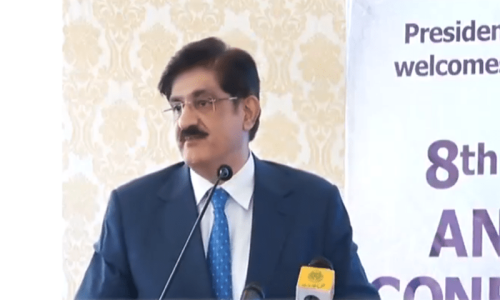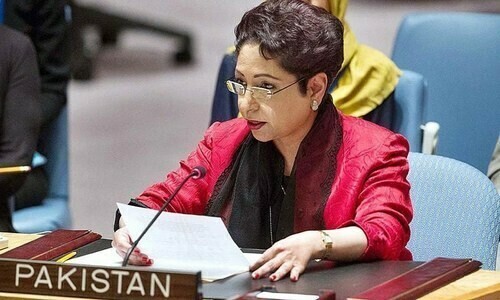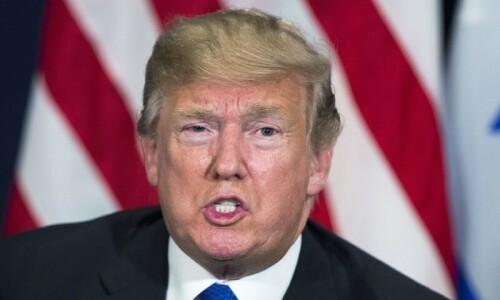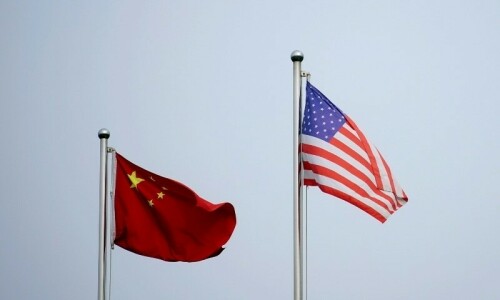KARACHI: The four-day 14th International Urdu Conference organised by the Arts Council of Pakistan began here on Thursday evening with the usual fanfare.
Two keynote speeches were made in the inaugural session. The first was by distinguished scholar Dr Jaffer Ahmed. The central idea of his paper was the relation between literature and culture. He said that in the last 75 years, the literature and culture symbiosis nurtured literature and enriched our culture. The need to understand this relationship has assumed importance because today we face a crisis in which cultural space is shrinking rapidly, which means we are faced with a huge paradox. We are celebrating culture at a time when it’s confronted with myriads of doubts in society. The need of the hour is that we analyse that how in the nurseries where literary works bloom, aspects such as militarism and intolerance are being watered.
Dr Ahmed said if we look back at the evolution of our literary journey then we will see that without doubt in different periods of the past our cultural space was wide enough to provide writers and thinkers with the right kind of atmosphere to create in. Although writers never get a completely free environment, they somehow find ways to express themselves. In the last more than seven decades our literature has been associated with a variety of schools of thoughts. There has been a battle of ideas in every period. But it had meaningful dynamics. Literature could not progress without culture.
He lamented that these days, things are different and attributed it to three factors. One, the state’s role in trying to confine writers’ scope. Two, encouraging militarism (askariyat pasandi) through curricula and the media. Three, intolerance which is a result of government or official policies.
Eminent scholar and academic Dr Tariq Rahman delivered the second keynote address. He said he would present three aspects about the identity of the Urdu language. The first was about Urdu’s Sanskrit phase. It used to be a language which Hindus and Muslims understood and spoke. The phase ended in the 18th century because of attempts made by individuals such as Shah Hatim, since it had Sanskrit words in it. This meant that Urdu became an elitist language from which people were excluded.
Urdu’s second identity, Dr Rahman said, was to do with Islam, that it is the language of Muslims. There was a period when it was being taught at madressahs. The third exclusionary facet of the language did not just have to do with Hindus or non-Urdu speakers, but it also related to those whose mother tongue was not Urdu – Punjabis, Bengalis, Sindhis etc – who had to face linguistic purism. “Was it an imperialist thing or was it particular elite which now didn’t have power [the British were in power] and in its defence was behaving like that.”
He claimed Urdu was supported by the British. There was an elite group above the Urdu elites, which were the British. They used to keep themselves enclosed from others. So they turned Urdu into an elitist language by emphasising on the right ‘sheen’ and ‘qaaf’. If your sheen qaaf wasn’t right, you would be out of that magic circle. In Pakistan, this language was used in order not to give Bengali, Sindhi and Pashto languages their share. “Urdu is the national language. Why not six national languages?” he asked.
Noted scholar Gopichand Narang, who spoke online from India, said he was born in Balochistan and Pakistan is his real country. His mother tongue is Saraeki but he can speak Balochi, too. However, it is Urdu whose magic work wonders for him. For him, Urdu is a bag of secrets because it’s become part of his very being. Just like the Taj Mahal is the building of buildings, Urdu is the language of languages.
President of the council Ahmed Shah while welcoming the guests stressed on the need for having an intellectual war against those who oppose culture.
Karachi Administrator Murtaza Wahab said language and culture are the most important part of any society. He also recited a poem by Habib Jalib.
Sindh Minister for Culture Syed Sardar Shah said the state instead of having a dialogue with Saad Rizvi should have a dialogue with writers such as Noorul Huda Shah and Kishwar Naheed. He argued Urdu should broaden its horizon to accept other languages. It should play the role of a mother.
Chief Minister Sindh Syed Murad Ali Shah said that it was in 2008 that the Pakistan Peoples Party (PPP) formed its government in Sindh and it’s also since 2008 that the Urdu conference is being held. After underlining the importance of literature in society, he bemoaned what has recently happened in Sialkot and asked what kind of environment we are leaving for our children. He suggested that the mainstream media should come up with literary programmes and requested the intellectuals and writers of the country to play their part in the effort. He pointed out that encouraging regional languages will increase love and affection amongst people. He added there’s a need to have libraries in every district in order to develop the younger generation’s interest in books.
The session was moderated by Dr Huma Mir.
In the second half of the opening day, Shaam-i-Faiz was on the programme’s list. It was arranged to pay tribute to the legendary poet Faiz Ahmed Faiz.
Published in Dawn, December 10th, 2021















































Dear visitor, the comments section is undergoing an overhaul and will return soon.